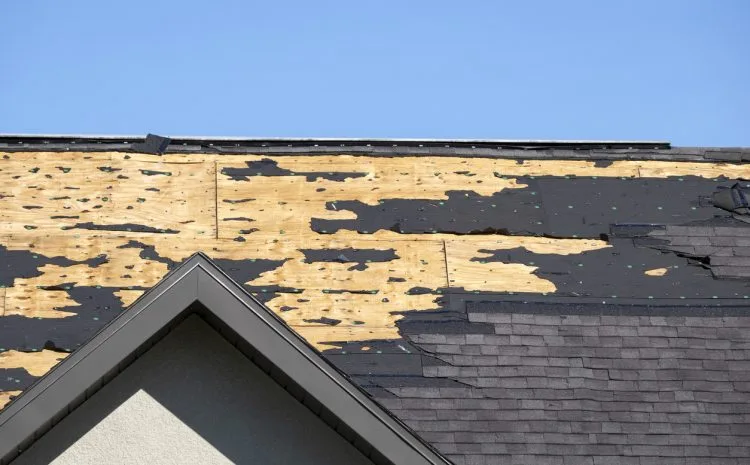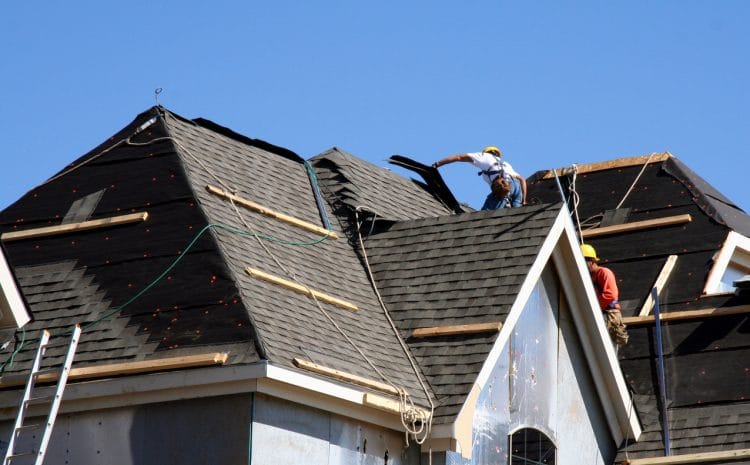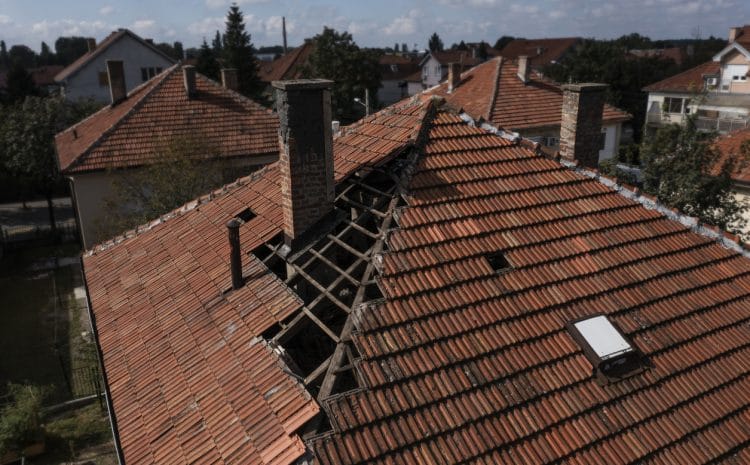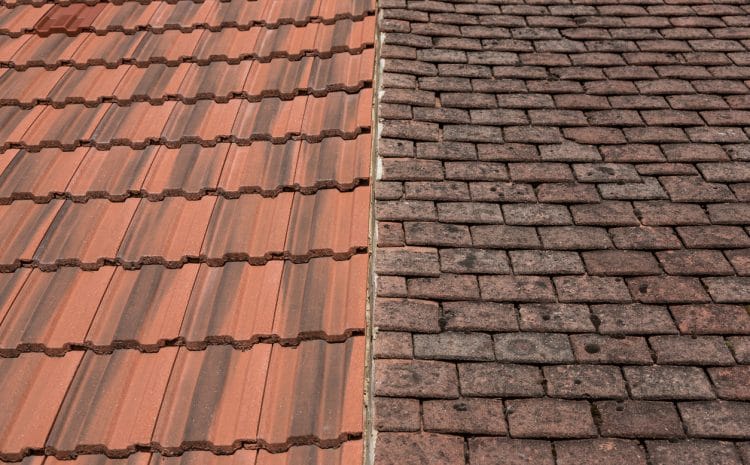Why Do Insurance Companies Deny Roof Claims and How Can You Appeal?

Homeowners often rely on their insurance policy for peace of mind, especially when it comes to roof damage caused by storms, wind, or other unexpected events. But many are shocked to discover their roof claim is denied—leaving them with a hefty repair bill and a confusing appeals process. If you’re wondering why do insurance companies deny roof claims, you’re not alone.
In this blog, we’ll uncover the top reasons roof claims are denied, and more importantly, how you can appeal a denied roof insurance claim to protect your home and finances.
Understanding Why Do Insurance Companies Deny Roof Claims
It’s a question that frustrates thousands of policyholders every year: Why do insurance companies deny roof claims, even when the damage seems obvious?
Here’s Why:
Insurance providers are businesses, and like any business, they aim to minimize their expenses—which includes paying out claims. By citing exclusions, technicalities, or policy loopholes, insurers often deny or reduce roof claim payouts to protect their bottom line.
Let’s take a closer look at the most common reasons insurance companies deny roof claims:
1. The Damage Is Classified as Wear and Tear
One of the biggest reasons why insurance companies deny roof claims is due to “wear and tear” exclusions. If the insurer believes your roof damage is due to aging materials or poor maintenance over time—not a specific covered event—they may deny your claim outright.
🔎 What to Know:
- Most policies only cover sudden and accidental damage
- Damage from age, rot, or deterioration is often excluded
- The burden is on the homeowner to prove the damage was caused by a specific event (like a storm or hail)
Tip: Keep maintenance records and before-and-after photos to prove your roof was in good condition before the damage occurred.
2. The Roof Is Too Old
Many insurance companies have guidelines that limit or exclude coverage for roofs over a certain age—often 15 or 20 years. If your roof is considered beyond its useful life, the insurer might deny your claim or only offer the actual cash value (ACV) instead of full replacement cost.
This is a frequent answer to the question: Why do insurance companies deny roof claims?
💡 What You Can Do:
- Ask your agent if your policy covers replacement cost or ACV
- If your roof is older, consider upgrading to impact-resistant materials to maintain coverage
3. Lack of Proper Documentation
A weak paper trail is another top reason why insurance companies deny roof claims. Without strong documentation, it’s easy for an insurer to question the validity or scope of your damages.
🚫 Incomplete Documentation Might Include:
- No photos of damage immediately after the event
- No weather reports or timestamps
- No contractor estimates or expert opinions
- No proof of regular roof maintenance
Tip: Take detailed photos and video immediately after the incident, and keep a written log of all communications with your insurance company.
4. Missed Filing Deadlines
Insurance companies require claims to be filed within a specific time frame—often 12 months or less from the date of the damage. If you miss the deadline, they can deny your claim, even if the damage is legitimate.
This technicality is a frustrating but common answer to why do insurance companies deny roof claims.
✅ What to Do:
- File your claim as soon as possible after damage occurs
- Don’t wait for the damage to worsen or become more visible
- Know your policy’s filing deadline and act accordingly
5. Pre-Existing Damage
If the insurer believes the roof damage existed before the storm or event you’re claiming, they may argue it’s pre-existing and unrelated. This is especially common when filing a claim after a major storm, where the damage timeline becomes critical.
📋 Prevention Tips:
- Get regular inspections and document your roof’s condition
- Save all past inspection reports and repair invoices
- Report damage immediately after any major weather event
6. Inadequate Policy Coverage
Sometimes the denial has more to do with the policyholder’s coverage than the damage itself. If your policy includes limited roof coverage, high deductibles, or special exclusions (such as for wind or hail), your roof claim might be partially or fully denied.
This is a critical factor in understanding why do insurance companies deny roof claims.
Pro Tip: Review your policy annually, and consider adding riders or endorsements to cover high-risk events common in your area, especially in storm-prone regions like Florida.
How to Appeal a Denied Roof Insurance Claim
If you’ve received a denial letter and you’re still asking, why do insurance companies deny roof claims, don’t give up. Appealing the decision is your right, and in many cases, denials can be overturned with the right approach.
Step 1: Review the Denial Letter Carefully
Start by reading your insurer’s explanation. Look for:
- The specific reason for denial
- The policy section cited as the basis for denial
- Any missing documentation they claim was needed
This information is key to crafting your response and understanding how to counter their findings.
Step 2: Gather Additional Evidence
To strengthen your appeal, you may need to submit more evidence, such as:
- Independent roof inspection reports
- Photos or drone footage of the damage
- Storm and weather data from the date of loss
- Expert opinions from contractors or public adjusters
The more evidence you provide, the harder it is for the insurer to deny your claim again.
Step 3: Write an Appeal Letter
Draft a detailed appeal letter that includes:
- Your policy number and claim number
- A clear, respectful statement disputing the denial
- A point-by-point rebuttal to the insurer’s reasons
- Supporting documents as attachments
Make sure to submit the appeal within the deadline stated in the denial letter.
Step 4: Consider Hiring a Public Adjuster
If you’re overwhelmed or getting nowhere, a licensed public adjuster can:
- Reevaluate your roof damage
- Prepare a new, comprehensive claim package
- Negotiate directly with the insurer on your behalf
- Help you recover a fair settlement faster
This is often the turning point for homeowners frustrated by why insurance companies deny roof claims with little explanation or help.
Step 5: Seek Legal Help If Needed
If your appeal is still denied or you suspect bad faith insurance practices, consult an attorney who specializes in property insurance disputes. Legal action should be the last resort—but sometimes it’s the only way to force a fair resolution.
How 411 Claims Help Can Assist You
At 411 Claims Help, we’ve assisted hundreds of homeowners across Florida in resolving denied roof insurance claims. Our team of licensed public adjusters will:
- Assess and document your roof damage
- Review your policy and denial letter
- Handle the appeals process from start to finish
- Fight for the maximum settlement you deserve
We understand why insurance companies deny roof claims, and we know how to challenge those decisions effectively. Don’t let a denied claim derail your recovery—we’re here to help.
📞 Call now for a free consultation 1-855-243-7400
Conclusion: Know Your Rights and Take Action
So, why do insurance companies deny roof claims? Often, it’s because of technicalities, poor documentation, or outdated roofs. But many of these denials can be successfully appealed—especially with professional help.
The key is knowing your rights, understanding your policy, and being proactive, not passive. Whether you’re filing a new claim or fighting a denial, following the right steps can lead to the outcome you deserve.



